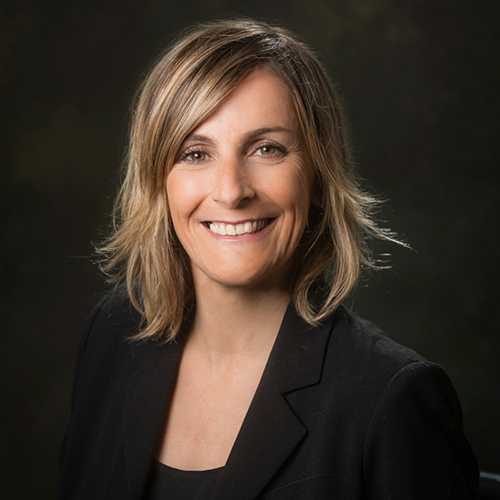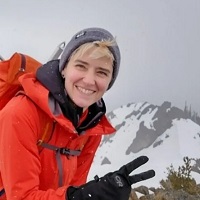Microbiology
BIOL-40336
Learn Microbiology Online: Discover Microbial Diversity, Disease, and Scientific Applications
Dive into the fascinating world of microbes with this online microbiology course. Microorganisms make up an estimated 90% of the Earth’s biomass and are central to life on our planet—from recycling organic matter and atmospheric gases to powering innovations in medicine and biotechnology. This course introduces the fundamentals of microbiology, covering microbial diversity, cell structure and function, physiology, genetics, reproduction, and host-parasite interactions.
Through a combination of lectures, interactive activities, and practical applications, you’ll learn how microbes influence human health, society, and the environment. By the end of the course, you will be able to describe the characteristics of bacteria, viruses, fungi, protozoa, parasites, and prions, understand microbial growth and reproduction, evaluate immune responses to infections, and apply basic microbiological techniques such as staining and metabolic testing.
This course is designed for anyone curious about the microscopic organisms that shape our world, providing both foundational knowledge and practical insights into their critical roles in science and everyday life.
Learning Outcomes
- Describe historical aspects of microorganisms' impacts on human societies.
- Describe the characteristics of bacteria, virus, fungi, protozoa, parasites and prions as they relate to medical microbiology
- Compare the differences between prokaryotic and eukaryotic cells.
- Identify the fundamentals of microbial reproduction, growth and control.
- Explain pathogenic features of disease causing microbes.
- Evaluate the basic immune response to infection by microbial agents.
- Apply fundamental stains, basic staining techniques, and corresponding bacterial and fungal morphology
- Demonstrate the uses of the various media and metabolic/enzymatic testing protocols
Prerequisites
There are no required prerequisites for this course. This course assumes knowledge of general biology.
Course Format
This online microbiology course follows an asynchronous format, allowing you to study flexibly while maintaining academic rigor. Weekly modules include structured content, practical exercises, and clear deadlines to ensure comprehensive understanding of genetic principles.
Transferring for College Credit
Many UC San Diego Division of Extended Studies courses may transfer to other institutions for college credit. The receiving institution determines credit transfer. We recommend consulting with your intended institution's registrar's office before enrolling to confirm transfer eligibility.
Lab Option
Students interested in this course with a lab component can enroll in BIOL-40335 Microbiology with Lab.
Course Information
Course sessions
Section ID:
Class type:
This course is entirely web-based and to be completed asynchronously between the published course start and end dates. Synchronous attendance is NOT required.
You will have access to your online course on the published start date OR 1 business day after your enrollment is confirmed if you enroll on or after the published start date.
Textbooks:
All course materials are included unless otherwise stated.
Policies:
- No refunds after: 3/2/2026
Schedule:
Instructor:
 Maria Fernandez-Ochoa, Ph.D.
Maria Fernandez-Ochoa, Ph.D.

Marketing Communications Manager, MO BIO Laboratories
Maria Wendy Ochoa, Ph.D., is currently the marketing communications manager at MO BIO Laboratories, a biotech company that develops molecular biology kits for microbiologists Previously, she was the manager of the electron microscopy facility at the Sanford-Burnham Institute. She has extensive experience in structural biology, in particular, x-ray crystallography, Cryo-electron microscopy and electron tomography.
Section ID:
Class type:
This course is entirely web-based and to be completed asynchronously between the published course start and end dates. Synchronous attendance is NOT required.
You will have access to your online course on the published start date OR 1 business day after your enrollment is confirmed if you enroll on or after the published start date.
Textbooks:
Microbiology: An Introduction 14th
by Gerard J. Tortora
ISBN / ASIN: 9780138200398
You may purchase textbooks via the UC San Diego Bookstore.
Policies:
- No refunds after: 3/30/2026
Schedule:
Instructor:
 Maria Fernandez-Ochoa, Ph.D.
Maria Fernandez-Ochoa, Ph.D.

Marketing Communications Manager, MO BIO Laboratories
Maria Wendy Ochoa, Ph.D., is currently the marketing communications manager at MO BIO Laboratories, a biotech company that develops molecular biology kits for microbiologists Previously, she was the manager of the electron microscopy facility at the Sanford-Burnham Institute. She has extensive experience in structural biology, in particular, x-ray crystallography, Cryo-electron microscopy and electron tomography.
Section ID:
Class type:
This course is entirely web-based and to be completed asynchronously between the published course start and end dates. Synchronous attendance is NOT required.
You will have access to your online course on the published start date OR 1 business day after your enrollment is confirmed if you enroll on or after the published start date.
Textbooks:
Microbiology: An Introduction 14th
by Gerard J. Tortora
ISBN / ASIN: 9780138200398
You may purchase textbooks via the UC San Diego Bookstore.
Policies:
- No refunds after: 4/27/2026
Schedule:
Instructor:
 Ejae Goddard
Ejae Goddard

Ejae Goddard (they/them) has a background in cancer, metastasis, immunology, and T cell-based immunotherapies. They received a B.S. in Microbiology from the University of Kansas in 2004. During this time they gained experience in a research lab studying herpesviruses. They went on to earn a PhD in Cancer Research from Oregon Health and Sciences University in 2017 while working in the lab of Dr. Pepper Schedin. Ejae's PhD work focused on understanding the high rate of metastasis and death observed in patients diagnosed with postpartum breast cancer. They discovered a novel biology of the liver, namely that the liver undergoes tissue involution following cessation of lactation in rodents. This involution establishes a pro-metastatic environment in the liver for a period of time post-weaning that may explain the increased risk for liver metastasis observed in postpartum breast cancer patients. After this work Ejae went on to complete a postdoctoral fellowship in Dr. Cyrus Ghajar's laboratory at Fred Hutchinson Cancer Research Center. During their postdoc, Ejae studied breast cancer dormancy at metastatic sites and determined that numerous T cell-based immunotherapy platforms, including engineered T cells and T cell-based vaccine approaches, are highly effective at clearing dormant disseminated disease in rodent models. In their free time Ejae enjoys photography, rock climbing, and alpine mountaineering.